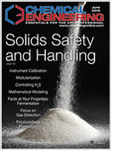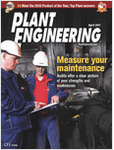Planning Your Future Career
Thursday, March 07, 2013
I would like to share a question that was asked to me recently. The question was posted to me in my Facebook private message. I have informed the person that I will try my best to answer her question in my blog, for the benefit of others because I believe more of chemical engineering students are facing the same dilemma.
Identity of the person has been changed. Here is the question and it is followed by my answer. My answer is totally based on my knowledge and experience. It maybe suitable for some of you and may not for others. Hence, I would encourage you to evaluate my responses and adapt it wisely to your situation. In addition, my answer is within Malaysia context. Here it goes...
Question:
Hi Mr Zaki, I had been following your facebook page and blog for a few
years. Let me introduce myself, I am Lin, currently taking chemical
engineering at a private university in KL and is a final year student. I feel bad
as I did not know which path should I take on after i graduate from my
degree, and I wish to get some of your opinions since you are an
experienced engineer.
I was offered to study master under a grant by my current supervisor. At the same time, I thought of working in the industry. However, this offer does not come always whereby it provide me monthly stipend and at the same time I can fully concentrate on my master study. Should I take it? By reading some articles circulated in the internet, it shows that it might be quite tough for you to continue study once you start working and with other commitments.
Few other lecturers at my university saying that students should go out to explore working world before entering into postgraduate studies and some said the opposite. this make me wonder the decision to continue study is right or wrong. Assuming that I completed my master in 2 years and decided to work at industry instead of entering into Ph.D, does the industry hire people that holds a master degree? I heard that it is difficult to find a job while you are having a masters degree. I don't mind getting a lower pay at the beginning as I know that I am not having any experience yet (just a fresh graduate). Also, some of them do mention that with a master degree, it will be useful to get you promoted in the corporate ladder. Is it true? If I were to apply a job after my master, is it wise to include it into my resume? (I'm afraid by including it I might not get into the first interview)
Meanwhile, I also hope to get the qualification of being a professional engineer. And it is difficult to obtain when you are in academic field as you did not involve in design work. If I wish to work on getting professional engineer, which field would you suggest to work into and work as what? I'm sad to say that I have not found any position that I wanted to work as. That's bad.
I hope that you can give me some advice and your opinions. I am quite confuse at this stage. Also, I am sorry for any inconvenient caused on my lengthy message.
I was offered to study master under a grant by my current supervisor. At the same time, I thought of working in the industry. However, this offer does not come always whereby it provide me monthly stipend and at the same time I can fully concentrate on my master study. Should I take it? By reading some articles circulated in the internet, it shows that it might be quite tough for you to continue study once you start working and with other commitments.
Few other lecturers at my university saying that students should go out to explore working world before entering into postgraduate studies and some said the opposite. this make me wonder the decision to continue study is right or wrong. Assuming that I completed my master in 2 years and decided to work at industry instead of entering into Ph.D, does the industry hire people that holds a master degree? I heard that it is difficult to find a job while you are having a masters degree. I don't mind getting a lower pay at the beginning as I know that I am not having any experience yet (just a fresh graduate). Also, some of them do mention that with a master degree, it will be useful to get you promoted in the corporate ladder. Is it true? If I were to apply a job after my master, is it wise to include it into my resume? (I'm afraid by including it I might not get into the first interview)
Meanwhile, I also hope to get the qualification of being a professional engineer. And it is difficult to obtain when you are in academic field as you did not involve in design work. If I wish to work on getting professional engineer, which field would you suggest to work into and work as what? I'm sad to say that I have not found any position that I wanted to work as. That's bad.
I hope that you can give me some advice and your opinions. I am quite confuse at this stage. Also, I am sorry for any inconvenient caused on my lengthy message.
Besides, I wish to know that when the industry hiring workers, do they
actually look on the electives you are taking? I am taking elective on
polymer and petroleum, is that means that I cannot apply job in other
fields, say food industry?
My response:
Hi Lin. I'm terribly sorry for my late response to your questions. I totally understand your situation. However, there are many things to consider. Hence, my response will not provide you a fix solution. Instead it will let you think and personally drive you to decide the correct path for your future.
First, what is your true and final ambition? Is it to be (A) academician/researcher OR (B) practicing engineer? This is the typical question I will always ask to students entering their final years whereby they got confuse on which path to take.
If you choose (A) academician/researcher, just pursue for masters degree (hopefully you like that field of research). You were offered to do masters with allowances. That's good enough. Along the way, which is about 2 years time, you will learn more about the field of your research in depth. You will slowly be an expert in some specialize area which is very good. You will be train by your supervisor to write journal paper. You will also learn to present your research in conferences, meetings and others. You will get to know more people - suppliers + technicians where you will learn a lot of things from them. Then after you graduate, I believe you will have the option to pursue to your doctorate degree or get a job in a research institution or university. From there on, if you are in a research institution such as Malaysian Palm Oil Board (MPOB) / Petronas Research Scientific Services (PRSS) / Shell Research / others, you will keep working on research and development. If you become a lecturer in a university, you will eventually be required to pursue a Ph.D. You will then need do a number of activities namely, teaching, research, supervising, writing, publishing, consulting and others. A lecturer is kind of a multitasking job. Either a career in research institution or university will allow you to get promoted depending on the working scheme.
Now, if you choose (B) which is to be a practicing engineer, you will get the taste of the industry. Since chemical engineering is very broad, it is difficult to cover the explanations here. However, typically, an engineer will after a while be promoted as a senior engineer, then manager and so on. You will be practicing your engineering skills and knowledge mostly when you are an engineer/senior engineer. Once you get promoted to a manager, you will be more involved in the management and lesser technical or engineering stuffs. If you are working in a plant/refinery, chances are your working hours can be relatively long. If you are in the sales and service industry, for example selling instrumentation equipments like flow meter or software, your working hours will be quite flexible and tend to travel to many places.
In situations A and B, you can be a professional engineer under the Board of Engineers Malaysia (BEM) and at the same time a member of Institution of Engineers, Malaysia (IEM). Just follow the training program and guideline provided under IEM. There is a clear guideline on how to be a professional engineer in the area of practicing / industrial engineer, academia and research. So, it is not really a problem. If you think being an academician you do not have practical experience, you can request from the university permission for industrial placement for 1 year period. At present, I know that public universities in Malaysia now allows lecturer to undergo 1 year practical industrial training in order get the industry exposure and that so call design work etc. Alternatively, as academician, you can compile your consultancy work (with companies/industries) that include design work and consider that as industrial working experience provided you can accumulate the working hours up to 1 year.
If let say you want to do masters degree, and then after 2 years be an engineer, normally, most of the time, your starting salary would not consider your masters degree. Your salary will be based on your first degree. Hence, you lost 2 years of working experience. Compared to your friends who becomes an engineer immediately after completing their first degree, after 2 years lapse, their salary maybe RM400 to 800 more than you when you started to work as engineer after doing your masters. So, can you see what you are losing. Climbing the corporate ladder in a company, as I know from experience of others, does not really require masters or so called Masters of Business Administration (MBA). If you have the talent, leadership skills, good communication skills, your way to be a manager is clear. There, you can easily climb the corporate leader and earn substantial salary plus attractive yearly bonus. Most companies also provide you a car and/or petrol card.
After your masters degree, you can also show that you have a masters degree in your resume, or you can also not show. It depends on you. It is difficult to say if a company wants to employ a masters holder or not. But I will say, it is no harm if you want to show that you have a masters degree.
Having taken elective subjects during your first degree is not a problem. It's an advantage. You may use it and you may also not use it when you work. So, don't really worry about that.
To answer one final question from you, if you want to be a professional engineer, which field and what job? Any field you can be a professional engineer as long as you are within chemical engineering industry. So, also don't worry about this.
That's my response. I hope you have clearer perspective on what your future will be. Anyway, I have some advice for you. Here they are:
1. Strive to earn a good chemical engineering degree.
2. Empower your softskills - communication and leadership skills.
3. Learn some extra skill (if possible), such as be a good in software like aspen or matlab etc.
4. Register with IEM and BEM as soon as you graduate.
The end. ;)
The end. ;)
Note: The image is my visit to a boiler company together with IEM Southern Branch member 2 years ago.
Recommended resources to boost your chemical engineering knowledge and career.
Get Chemical Engineering magazine. Chemical Engineering serves chemical engineering professionals in the chemical process industry including manufacturing, engineering, government, academia, financial institutions and others allied to the field serving the global chemical process industry. Get the magazine at NO COST by clicking HERE.
Alternatively you may also want to check out another great free magazine. It is called Plant Engineering magazine.
Plant Engineering is a problem-solving resource for industrial plant engineering professionals responsible for the planning, specification, installation, maintenance and operation of industrial plant facilities, utilities, equipment and systems. It provides information to the people who operate and maintain industrial plants and bridges the information gap between engineering education and practical application. Download this magazine free of charge HERE.
posted by Kipas Repair JB @ 9:46 PM,
![]()
0 Comments:
The Author

I’m Zaki. I used to be a project, process and chemical engineer. Few years ago I successfully became a Chartered Engineer (IChemE) and Professional Engineer (BEM). I'm now employed as a chemical engineering educator/researcher/consultant. Hope you like reading my blog. I welcome any feedback from you. My email: zaki.yz[alias]gmail.com. TQ!





